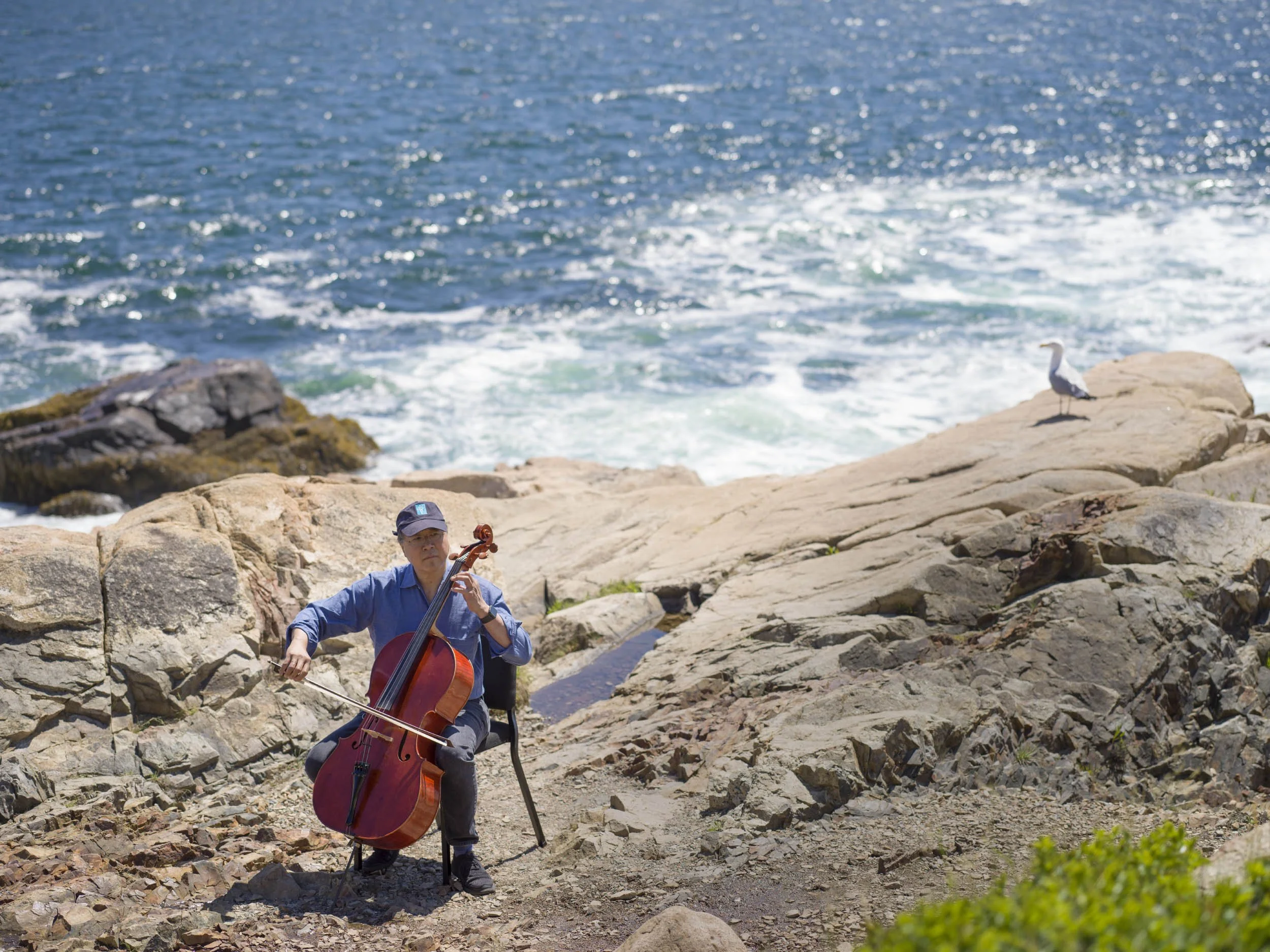
We Are Water
words by maggie knowles
photography courtesy of portland ovations
“In 2020, we heard from the Portland Public Schools that they wanted to teach Wabanaki curriculum in partnership with us,” recalls Aimée Petrin, Executive and Artistic Director of Portland Ovations.
She knew exactly who she could talk to: Chris Newell, a citizen of the Passamaquoddy Tribe at Indian Township and former director of the Abbe Museum in Bar Harbor, which preserves and celebrates the heritage of the four Native communities in Maine.
From that call, Wabanaki Stories was born.
Created around the ethos that stories expand far beyond words, the music-centric Wabanaki Stories are tools to build community, teach values, and pass on knowledge to future generations. As of 2025, the performance has toured six times for over 8,000 students, teachers and community members. New performances in the 2026 season feature six Wabanaki artists coming from several different nations and traditions.
“The Wabanki artists have full agency on what the art is and how it is presented. The Wabanaki is a living, breathing culture that is here in Maine” said Petrin.
That first performance of Wabanaki Stories in 2020 landed during an Arctic Vortex that blew in temperatures of negative twenty degrees. A sold-out audience still showed up.
Knowing they had created something special to share with Maine, Petrin called Newell and asked, “What’s the next big dream?”
Newell quickly answered, hoping to re-create the Weckuwapok (The Approaching Dawn) at Merrill Auditorium, “Even if we can’t get Yo-Yo.”
“Who says we can’t get Yo-Yo,” mused Petrin. “We’ve been presenting him here for 20 years. Let’s try.”
The 2021 surprise Weckuwapok performance on Acadia National Park’s Schoodic Point, that momentarily distracted Mainers from the pandemic chaos, was a collaboration between renowned cellist Yo-Yo Ma and seven Wabanaki musicians to uplift Indigenous voices through music and nature. Part of the intimate audience was secretary of the interior, Deb Haaland, who was the first Native American ever to be confirmed as a cabinet secretary.
“Yo-Yo Ma had asked me, ‘What would be meaningful to Wabanki people? How do we create something that will cause transformation?’ I said, ‘Play your music at sunrise because that’s part of our culture,’” said Newell.
Creating music on the land and waters that have been home to Wabanaki People for over 12,000 years was a precious moment only witnessed by a handful of people. It felt meaningful to bring the essence of the moment to a larger audience, even if the venue was moved inside to the city.
“This 2025 performance will be a once-in-a-lifetime experience, built because of this time and place,” says Petrin. “It bridges music and a social cause with this genius who is a musician and humanitarian.”
The social cause that flows throughout the performance is protecting the essential resource that is water. The planet is toiling between scarcity and overabundance directly affecting every living thing.
“Humans are 80% water. We are water,” said Newell. “Water has always served as an indigenous connector for trade. In modern times, water became how we separate ourselves and create boundaries. We need to remember that water connects us.”
At the heart of sharing Wabanaki Stories is bringing the performances to schools across the state. Interaction with music from a young age is an important aspect of socioemotional learning, especially when the students see their own story created with compassion and empathy.
Pertrin shares when her own daughter was at a school performance of the Royal Drummers of Burundi and happened to be next to a girl who had moved from the East African nation. “It was the first time the child had seen her culture represented since moving to Maine. She knew all of the music, songs and names of the drums.”
Shared experiences through music, dance, performance and art allows for community building at the core. It is important to support creation from grassroots movements to large scale productions so we stay in touch with where we all came from.
“Regardless of how we got here, we are all here together,” said Newell. “We need to protect our resources and water for future generations. We can affect the future starting today.”
For more information and to see the full schedule of performances, visit portlandovations.org.



